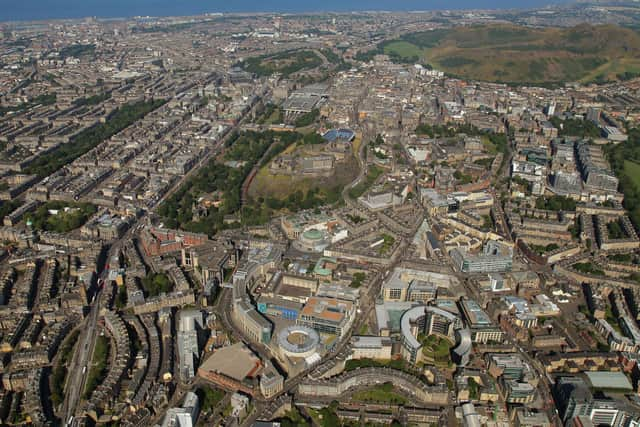Edinburgh leading Scotland's hotels recovery but challenges remain: new figures
and live on Freeview channel 276
The Scottish capital’s hotels sector is showing “strong signs of recovery”, even before COP26 room rates are taken into account, according to PwC’s latest UK hotels forecast.
Edinburgh was among the hardest hit cities in the UK when the country spent much of 2020 in lockdowns, however this year’s demand for domestic holidays has seen the city’s economically vital hotel sector bounce back.
Advertisement
Hide AdAdvertisement
Hide AdDespite the signs of a rebound, PwC predicts that 2022 will remain a challenging year for Scotland’s hoteliers.


The report shows that Glasgow and Aberdeen face a more challenging path back to pre-pandemic levels than Edinburgh. However, figures for August indicate that all three Scottish cities measured in the report are recovering.
After the most volatile trading period since benchmarking began, overall UK hotel trading performance is set to improve in the new year as demand continues to return but trading is still not anticipated to return to pre-pandemic levels by the end of 2022.
For the year to August, the average daily rate charged for a room in Edinburgh recovered to £86.42 – a 21.3 per cent increase on the same time last year, when the pandemic had seen average rates fall by one third.
Advertisement
Hide AdAdvertisement
Hide AdThe industry benchmark, revenue per available room (RevPAR), for the year to August increased by 20.8 per cent to £36.06 – which is still well down on long-term trends, PwC noted. This in part was due to an average occupancy rate of just 41.7 per cent, which is in line with the previous year.
However, in an encouraging sign, when looking at the month of August in isolation Edinburgh saw occupancy rates of 70 per cent compared with 49.8 per cent the previous August. This led to a RevPAR surge of 119.4 per cent - reaching £81.99, ahead of pre-pandemic levels.
The demand for rooms during COP26 in the first half of November should push this even higher, the report added.
Claire Reid, regional leader for PwC in Scotland, said: “The hotel sector has been shaken by the pandemic, but the underlying reasons for visiting Scotland remain, and as we have emerged from lockdowns we are seeing visitors make their way back - driven by domestic tourists from other parts of the UK.
Advertisement
Hide AdAdvertisement
Hide Ad“August figures give cause for optimism but the speed of recovery in Scotland will depend on a number of factors including the return of international tourism and business travellers.
“With the boost of COP26 to come this month, and hopefully an ongoing reprieve from Covid restrictions, the next few months should see hotels begin to look to the year ahead with more confidence, however they must continue to innovate and adapt to cater for available markets.”
While Edinburgh’s hotel sector is on the road to recovery, the picture was less rosy in Glasgow, which is still recovering from the lockdown of early 2021. In the year to August, its RevPAR was just £23.32, down 5.2 per cent on the year to August 2020, and less than half of the £52.57 recorded pre-pandemic.
A message from the Editor:
Thank you for reading this article. We’re more reliant on your support than ever as the shift in consumer habits brought about by coronavirus impacts our advertisers. If you haven’t already, please consider supporting our trusted, fact-checked journalism by taking out a digital subscription: www.scotsman.com/subscriptions
Comment Guidelines
National World encourages reader discussion on our stories. User feedback, insights and back-and-forth exchanges add a rich layer of context to reporting. Please review our Community Guidelines before commenting.
